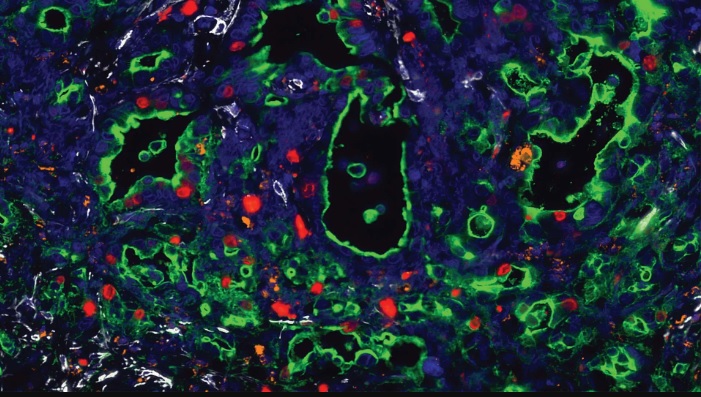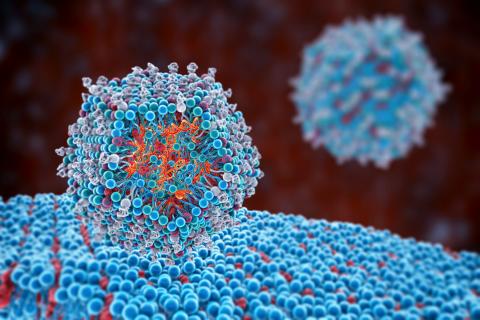Reactions: Phase 1 clinical trial tests personalised mRNA vaccines for pancreatic cancer
A phase 1 clinical trial has tested personalised mRNA vaccines against the most common type of pancreatic cancer with a particularly poor prognosis. The treatment, which is tailored to the characteristics of each patient's tumour, was given to 16 people along with surgery, chemotherapy and other immunotherapy. Half of them showed an immune response to the vaccine, which was associated with a better prognosis. The results are published in the journal Nature.

Melero - Páncreas (EN)
Ignacio Melero
Professor of Immunology at the University of Navarra, CIMA researcher and co-director of the Department of Immunology and Immunotherapy at the Clínica Universidad de Navarra.
It is a clinical trial whose logistics are, in themselves, a feat. Not just because it was conducted entirely during the pandemic and while BioNtech was focusing on its SARS-CoV-2 vaccine, but because it is a marvel of the technology that BioNtech and Roche are able to perform, identifying antigens and producing an mRNA vaccine in just six weeks. It involves a limited number of patients, but the evidence that neoantigen mRNA vaccines work is very strong in this trial after surgery.
This trial has led to another phase 2 trial, already underway and involving several Spanish centres, including ours.
It coincides with the presentation at the AACR congress of data from a trial of personalised Moderna vaccines in combination with anti-PD1 for advanced melanoma with positive results.
Personalised mRNA vaccines combined with immunomodulation are clear candidates to dominate oncology treatments, especially when applied around surgery with curative intent.
Manel Juan - cáncer páncreas EN
Manel Juan
Head of the Immunology Service
The study is very well designed and its scientific quality is unquestionable. It demonstrates something that has been suggested many times before (with less solid data), namely that personalised vaccination with tumour antigen mRNA is effective in inducing a response and can, at the very least, increase survival times. This work confirms that it can generate responses with clearly very low adverse effects against one of the most lethal tumours, pancreatic ductal adenocarcinoma.
The work fits in perfectly with the growing number of studies showing evidence of these treatments. The main contribution is that it achieves this in a tumour generally considered not very reactive to immunotherapy and reconfirms those of us who consider that immunotherapy is a general approach more dependent on the immune status of the individual than on the type of tumour.
The most important limitation is that the sample size (of treated patients) is clearly very small and with a single-branch, non-randomised design. In any case, once the safety of the proposal has been confirmed, it seems that the next step to study is to see if simply advancing this "vaccination" before giving the checkpoint inhibitor [the other type of immunotherapy used] may be more reasonable and may allow better clinical results than vaccinating after administering the antibody as has been the case (surely as an ethical criterion of first giving the treatment that has demonstrated a certain functionality, although physiopathogenically it makes less sense). In any case, it is an important contribution to the field, although we cannot consider it to be disruptive or definitive.
Rojas et al.
- Research article
- Peer reviewed
- Non-randomized
- Clinical trial
- People



